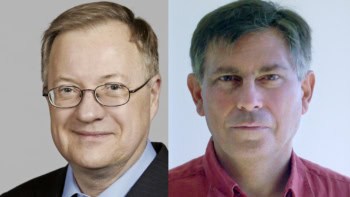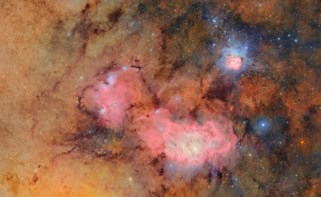In 2006 George Smoot shared the Nobel Prize for Physics for his studies of the cosmic microwave background (CMB). Smoot famously likened his findings to seeing God, and Stephen Hawking was quoted at the time as saying it was the greatest discovery of the century, if not of all time.
In an exclusive interview filmed at the Lawrence Berkeley National Laboratory (LBNL), Smoot gives his thoughts on the current state of cosmology and reveals whether winning the Nobel prize has altered his approach to science.
“The Nobel prize is both an asset and a weight,” Smoot says. “It’s funny, there are some people who consistently underestimate what I can do. And then there is another set that overestimate – ‘You have a Nobel prize you can do everything’. The truth is somewhere in between.”
Branching out
Since winning the prize, Smoot has continued his studies of the CMB through his role as one of the founders of the Planck satellite that launched in April 2009. But he has also branched out into other areas of cosmology, including the study of gamma-ray bursts – energetic explosions observed in distant galaxies that can reveal details about the early universe.
In the interview, Smoot is also asked to share his thoughts on the state of science in the US and he admits that President Obama has struggled to deliver on the promises he made to science when he came to power. “I think he really would like to see science grow up; he sees that as a way to have innovation and jobs growth and for the economy to grow,” says Smoot.
“The issue you have is that you have to be careful about spending because you’ve been borrowing too much money. But on the other hand, you have to make sure that your growth and innovation continue to be competitive in the world, and that you can eventually pay down your debts,” he cautions.
At LBNL, Smoot works on the same floor as Saul Perlmutter, who shared the 2011 Nobel Prize for Physics for the discovery of the accelerating expansion of the universe through observations of distant supernovae. Indeed, success is a familiar feeling at the Berkeley lab. Since the LBNL was established in 1931, no fewer than 13 of its scientists have won Nobel prizes (across all categories).
The story of success
In a separate video, a number of researchers who work alongside Smoot and Perlmutter discuss what it is like to be at a lab with such a strong tradition of success. The researchers also speculate about where they believe the next Nobel-prize-winning discoveries might lie. And given the history of this lab, you would not bet against some of these cosmologists becoming the Nobel laureates of tomorrow.



